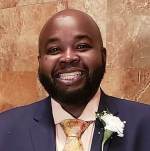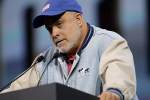“Trump lied. People died.” That was Senate Minority Leader Chuck Schumer’s succinct verdict on what we now know from Bob Woodward’s detailed account — including recordings of his interviews with the president — of Donald Trump’s response to the coronavirus pandemic starting in late January and early February.
In his own public remarks since the contents of Woodward’s book became known, the president has confirmed the noted author’s account. Trump’s excuse for lying? He didn’t want to cause public “panic.”
That’s a curious view of presidential leadership. A view, it’s worth noting, that Abraham Lincoln didn’t succumb to in the run-up to, or during the course of, the Civil War. Nor did Franklin Roosevelt choose it as the route to take after Pearl Harbor. In the wake of 9/11, George W. Bush counted on Americans to be resolute, courageous, and united as a people.
No president of the United States in my memory has been so craven in the face of a national emergency.
But that’s where Donald Trump’s head took him, and the results were lethal. More than 200,000 Americans are now dead, over 6 million more infected. Both numbers will continue to climb because Trump doesn’t trust the strength or wisdom of his fellow Americans.
Perhaps he was projecting, but the tragic part is that he didn’t need to be afraid. Some timely and relevant public opinion research data from California’s 4th Congressional District (Sacramento suburbs and the Sierra foothills stretching down to the far eastern reaches of Fresno County) shows what I mean. This is bona fide “Trump Country” (he carried the district 54%-38% in 2016), yet a recent survey in which “swing voters” were examined most closely showed the following:
- Some 70% of respondents felt that California’s shelter-in-place mandate was appropriate and necessary.
- Nearly 60% feared that the shelter-in-place policy would be ended too soon.
- Fully three-fourths of swing voters believe that, insofar as the coronavirus pandemic is concerned, “we should follow the advice of scientists and medical experts,” as opposed to only 25% who believe we should “follow the advice of political and business leaders.”
These findings raise some critical questions: If the president had been honest from the beginning, how much more public acceptance of masks and social distancing might there have been? How much less active resistance to the policies might have been the result? And, therefore, how many needless deaths might have been prevented?
These are not rhetorical questions. They go to the central, inescapable conclusion: Trump lied and people died.
Early in my career I had the honor and privilege of working in the White House of Jimmy Carter (I had worked in his 1976 campaign and I held senior positions in his unsuccessful 1980 reelection effort). From my close-hand vantage point, I watched President Carter deal with crises such as the Iranian hostages, the oil embargo, and Three Mile Island, and never once did he crouch in the corner, petrified that he was outmatched by circumstances. Never once did he — or our other presidents — conclude that the citizenry wasn’t up to hearing the truth.
On July 15, 1979, Carter addressed the nation from the Oval Office. The address, forever tagged—unfortunately, in my view– as the “malaise speech” (because a loose-lipped aide, Patrick Caddell, labeled it as such to reporters), was remarkable in its candor and in its prescience. Here is how Carter began his speech (very early drafts of which I had a hand in crafting) that mid-July night:
This a special night for me. Exactly three years ago, on July 15, 1976, I accepted the nomination of my party to run for president of the United States. I promised you a president who is not isolated from the people, who feels your pain, and who shares your dreams, and who draws his strength and his wisdom from you.
Carter then went on to describe, sometimes in awkward and painful detail, a self-reexamination process he had undergone the previous two weeks at the presidential retreat at Camp David in Maryland’s Catoctin Mountains.
From there he pivoted to the still unmet energy crisis facing America, near and long term. On that subject, about which his knowledge was extensive and his feelings intense, Carter argued once again for national policies that would enhance our national energy security, conserve resources for the long haul, and protect the environment (imagine where we’d be today on climate change if Carter’s vision had been fulfilled!).
Carter then ended his speech by saying:
I will do my best, but I will not do it alone. Let your voice be heard. … Let us commit ourselves together to a rebirth of the American spirit. Working together with our common faith, we cannot fail.
President Carter was onto something truly important. Sadly, the central point of that speech — that we are in these challenges together and must meet them together — is totally lost on Donald J. Trump. And, it seems, his followers. That is too bad. Because tens of thousands of lives might have been saved if President Trump understood that fundamental principle about America.








